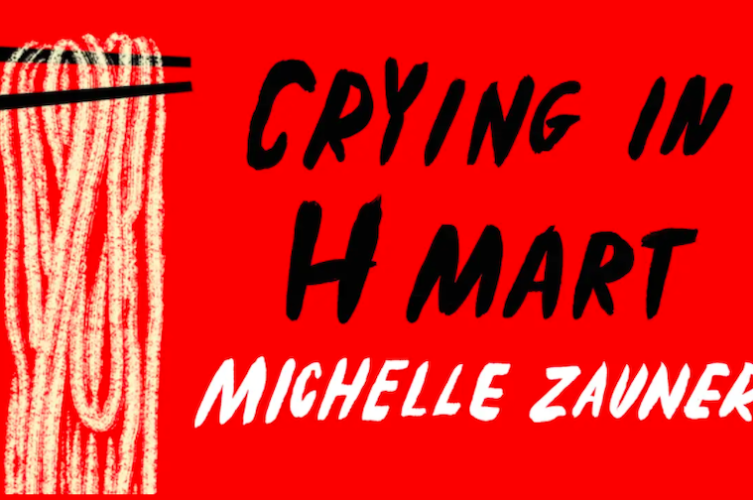Don’t be surprised if ‘Crying in H Mart’ makes you cry
Photo courtesy of The Berkshire Edge
Crying in H Mart, a memoir by Michelle Zauner, brings insight from a special perspective about grief, disconnect, culture and family.
January 26, 2023
As I’ve gotten older, being an avid reader has become harder and harder. Every time I try to pick up a book, it feels like I’m either too busy or too devoted to the short, funny videos on my phone to actually read it. However, before winter break, for the first time in months, I picked up a book I actually looked forward to reading — “Crying in H Mart.” The bright red book was recommended to me by a friend, and the big letters and light weight made it feel approachable. Still, I never thought I would follow through with reading it. Looking back, I’m so glad I did.
“Crying in H Mart” is a memoir by Michelle Zauner, a Korean-American musician and the lead singer in the band Japanese Breakfast. The book was published on April 20, 2021, almost two years ago, but it was introduced to me just a couple of months ago.
The book follows Zauner’s relationship with her mother, Chongmi as she battles pancreatic cancer. We get glimpses into Zauner’s life as an adolescent and how it affected her connection with her mother. We watch her carve a career path while navigating her mother’s illness, old and new relationships and an evolving connection to her culture and family. The chronological timeline was helpful in imagining Zauner’s life, and she often brought up past whispers about previously mentioned things.
As a Korean-American myself, the book was even more intriguing. There were specific moments in Zauner’s story that I was able to relate to, such as when she ate octopus for the first time to impress her family, having to ask her mom to translate words spoken in Korean, or being jet-lagged after a flight to Korea and sneaking around the house with her mom at 3 a.m..
On a broader scale, the story truly came to life through the poetic and beautiful language Zauner used. It was artistic and the way she got her point across sounded more meaningful as a reader — it felt like I was there in the moment.
With the stages of sickness and grief being heavy narratives in the story, Zauner had to be vulnerable in sharing her story of losing her mother. “This could be my chance, I thought, to make amends for everything,” she writes on page 110. “For all the burdens I’d imposed as a hyperactive child, for all the vitriol I’d spewed as a tortured teen…I would radiate positivity and it would cure her. I would wear whatever she wanted…”
After learning about the diagnosis, we learn the expectations Zauner sets for herself and as the story unravels, the way she approaches difficult problems is both heartbreaking and inspirational. She takes us through the ups and downs of her mother’s illness and ultimately her narrative, revealing the turbulence and pain of dealing with grief and the feeling that time is fleeting yet also so slow.
Whether some aspects are relatable or not, I highly recommend this book to feel the experience of growing up and learning about family dynamics and culture. It was a memorable read and I continued to find myself referencing the book multiple times in my everyday life.








































